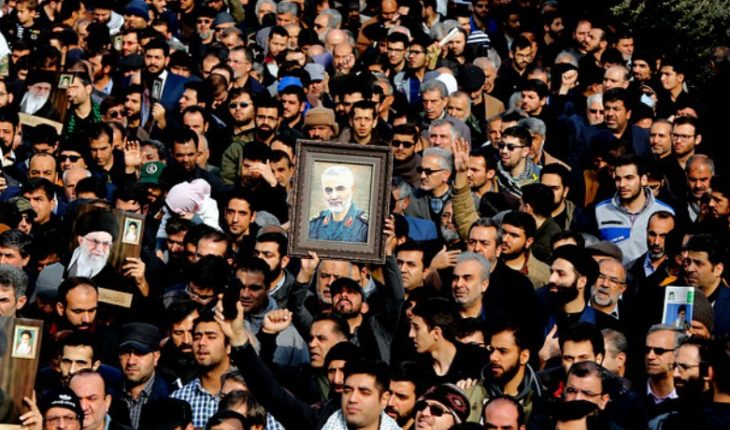The Chief of Staff of the Armed Forces of Iran, Mohamad Baqeri, said on Thursday that Tehran is “not interested” in a further increase in regional tensions, although he has stressed that it will give “a crushing response” to any to guineance.” We hope that the U.S. withdrawal from the region will put an end to all the chaos and conflict,” he said, during a telephone conversation with Turkish Defense Minister Hulusi Akar.So he has accused Washington of starting “a new round of tension” in the region with the bombing that killed General Qasem Soleimani, head of the Quds Revolutionary Guard Force on 3 January, iranian television network Press TV has reported. In this regard, Baqeri has highlighted that Iran carried out in response the bombing of Iraqi bases in which U.S. soldiers deployed even though Washington sent messages trying to calm the situation. Soleimani was killed alongside the ‘number two’ of the Popular Mobilization Forces (MPF) – a coalition of Iraqi pro-government militias supported by Tehran – Abu Mahdi al Muhandis, and several Iraqi militiamen, after which Iran promised to take revenge for the attack. In response to Soleimani’s death, Iran attacked two military bases in Iraq deployed on January 8, in what Iranian Supreme Leader Ali Khamenei described as “a slap” at Washington.El US President Donald Trump assured hours after the attacks have been settled without casualties, although one head of Iran’s Revolutionary Guard claimed that at least 80 U.S. service members have been killed there. For their part, the Iraqi authorities harshly criticized the bombing of Soleimani and the MPFs and stressed that this coalition of militias was an important element in the fight against the jihadist group Islamic State.So the Iraqi Parliament approved on 5 January a motion that calls for the expulsion of U.S. troops from the country and forces the Government to commit to any agreement it reaches in the future for the presence of foreign military advisers and trainers. During the january 6 day, the Iraqi Executive limited the activities of the international coalition and reduced them to training and advisory work, banning their movements by land and air. That’s why the anti-Islamic-State coalition announced on 9 January a “pause” of its military operations in Iraq.
translated from Spanish: Iran says it ‘isn’t interested’ in more tensions but promises “a crushing response” to any aggression
January 16, 2020 |





